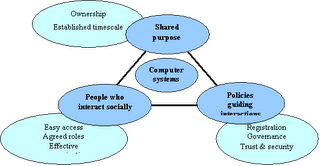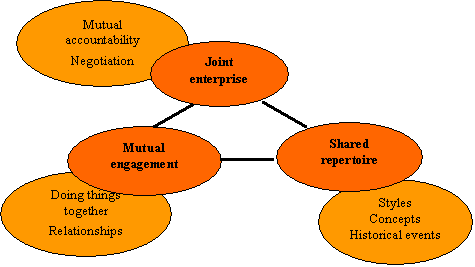There’s nothing new in MOOCs
10/01/2013 in About this course, Evaluation
Towards the end of last year I started working with the ocTEL team on how to evaluate the Massive Open Online Course or MOOC they’ll be running in 2013. There is a *huge* amount of discussion on MOOCs at the moment from tips for those taking a MOOC to the future of MOOCs and HE. This article from the Chronicle provides a rather US centric timeline of developments and responses to MOOCs. There is also the recent launch of the slightly mysterious Futurelearn in the UK. There has been some very interesting discussion on this on the ALT mailing list. The list is members only, but quoting from a recent list posting by Diana Laurillard “Everyone in the field knows there’s nothing new in MOOCs” but we do need to meet the “massive demand for education, across all sectors from primary to lifelong, all over the world… It can’t be done without technology… It’s time to start looking seriously at what those models could be.”
For me at the moment, the focus is on evaluating just one MOOC, which is still under construction. Nonetheless, when I started asking the ocTEL team what they hope the MOOC will provide, one of the themes that emerged quite strongly is the desire for a sustainable community to come out of the MOOC. This has led me back to work I undertook over ten years ago on the theory and practice of online learning communities. At that time, I was influenced by Etienne Wenger’s insights into Communities of Practice and Jenny Preece’s perspective of designing usability and supporting sociability in online communities. Figure 1 summarises the dimensions of practice Wenger attributes to ‘community’, and Figure 2 shows the relative similarities in Preece’s online community key features.
Figure 1 – Dimensions of practice as the property of a community
(Wenger, 1998, p73).

Figure 2 – Key features of an online community, with associated characteristics
(Adapted from Preece, 2000)
These models will be reviewed and elements drawn into the ocTEL evaluation framework. I’ll also be looking at the concept of sustainability in relation to community. This has been addressed before by Bell et al in their 2007 book chapter entitled Evaluation: a link in the chain of sustainability. They highlight how the lack of persistence could come down to coordination failure or when the “costs of participation exceed the perceived benefits“.
So perhaps there is nothing new in MOOCs, or maybe it’s just a reminder to put old lessons into practice.
References
Bell, F et al (2007) Evaluation: a link in the chain of sustainability. In Lambropoulos, N & Zaphiris, P (Eds.) User-Centered Design of Online Learning Communities. Idea Group Inc.
Harris, RA & Niven, J (2002) Retrofitting theory to practice – a reflection on the development of an e-learning community. In Banks et al (Eds). Proceedings of Third International Conference on Networked Learning. Sheffield University.
Preece, J (2000) Online Communities: Designing Usability, Supporting Sociability. Chichester, John Wiley and Sons.
Wenger, E (1998) Communities of Practice. Learning, meaning and identity.Cambridge University Press, Cambridge.
** Adapted from a post on the Inspire Research blog. **

